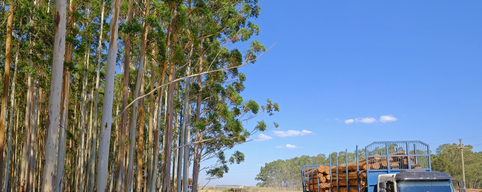

The German Forestry Council (Deutscher Forstwirtschaftsrat, DFWR) has formulated clear expectations for the 20th German Bundestag and the future federal government to promote sustainable and stable forestry. Amid numerous discussions about infrastructure and climate protection investments, the DFWR calls for forests and their managers to be recognized as “critical infrastructure”. This demand underlines the urgency of considering forests not only as a resource, but also as an indispensable part of the national infrastructure.
In the current debate on climate protection, the essential role of forests is often overlooked. As the green lungs of our planet, they play a crucial role in the production of wood as a renewable resource. This aspect of sustainability is particularly important because wood as a building material can significantly contribute to the reduction of CO2 emissions. Forests serve as carbon sinks and thus contribute significantly to the binding of CO2. Effective climate protection is hardly conceivable without them.
However, climate change has had a significant impact on forests. Increased temperatures, frequent droughts and extreme weather events are affecting tree populations, which in turn puts pressure on the entire forestry sector. This makes active engagement from foresters and forest owners essential. Continuous care and protection of forests is necessary to maintain their climate and environmental functions. The demanding climate calls for resilient approaches to forest management, for which the DFWR is calling for targeted support from those in government.
It is crucial for those working in the forest that they can rely on a predictable political framework. Such a framework is the foundation on which a functioning and future-oriented forestry industry can be built. Uncertainties and a fluctuating political environment complicate the work of forest owners and jeopardize long-term planning and investment in sustainable forest management practices.
To reduce mistrust and make the most of the forestry potential, clear and reliable policies must be established. Political instability and constantly changing requirements weaken the forestry industry's trust in state institutions. The DFWR therefore calls for a long-term forestry policy and clear regulations that provide a stable basis for investment and innovation. Only in this way can forests be effectively recognized and used as critical infrastructure for climate protection.



